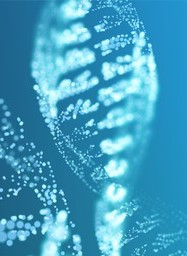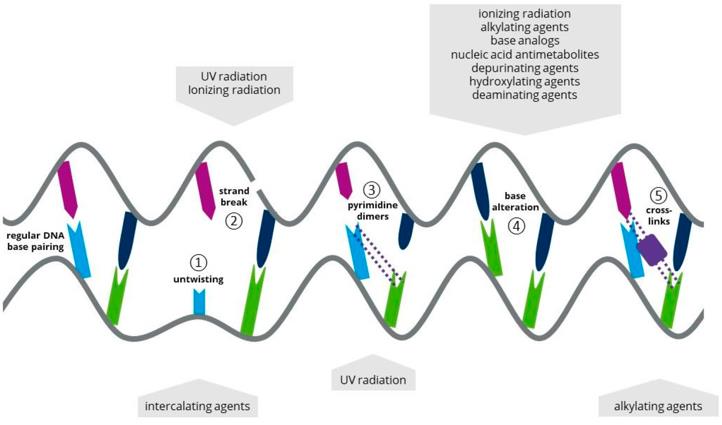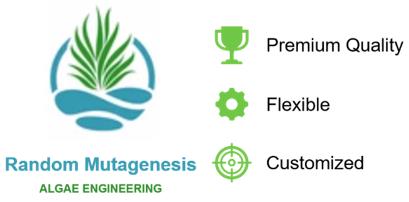Random Mutagenesis Service for Algae
In order to improve algal production by optimizing biotechnological processes, increasing the productivity and robustness of cell factories is a principal step towards an economically viable biological process.
As a company that has specialized in algae research for many years, Lifeasible can provide professional services to facilitate your algae engineering projects.
Introduction to the Random Mutagenesis
In addition to target gene engineering, random mutagenesis is a major method to improve the performance of algae cell factories, which can conquer the regulatory issues related to the usage of genetically modified organisms in industrial fields, such as the food and feed industry or natural cosmetics. Random mutagenesis involves repeated exposure to physical or chemical mutagens that produce genetically and phenotypically diverse mutants that must be further screened for desired cellular properties and improved metabolic function.

Mutagens in Algal Biotechnology
Mutagens cause irreversible changes in the genetic information of cells with the aim of creating significant mutant cells with great genetic and phenotypic diversity.
 Fig.1 Five mutagens and their impact on DNA. (Bleisch, R., et al., 2022, Life (Basel, Switzerland))
Fig.1 Five mutagens and their impact on DNA. (Bleisch, R., et al., 2022, Life (Basel, Switzerland))
Physical Mutagens |
Ultraviolet Light (UV) is mainly used to produce random mutations in microalgae cells, although photosynthetic cells may be resistant to certain physical mutagens due to their photon-trapping and quenching properties. |
| Ionizing Radiation, such as gamma rays, X-rays, or ion beams, can also be used as physical mutagens which can lead to severe genetic damage because of its higher energy density compared to UV radiation. | |
| The use of Atmospheric and Room Temperature Plasma (ARTP) has recently been discovered to treat microalgal strains, which involves exposing cells to charged particles, electromagnetic fields, neutral reactants, and heat. | |
| Laser Radiation has been used in the genetic engineering of microalgae. Since natural heat dissipation and fluorescence quenching, many microalgae exhibit a high tolerance to radiation in the visible spectrum, which can be overcome by laser radiation. | |
Chemical Mutagens |
Alkylating agents (AAs), predominantly methyl and ethyl groups, are commonly used in random point mutagenesis to induce nucleotide substitutions after replication of the DNA. |
| Chemicals that can replace DNA bases during replication are known as Base Analogs (BAs). If a BA is chemically bound to deoxyribose, it is possible to alter the shape and thus pair with an incorrect base during replication. According to the BA used, different types of changes in DNA pairing can be induced. | |
| The structure of Antimetabolites (AMs) is very similar to naturally occurring metabolites in cells, but they do not perform their functions. In recent studies, good mutagenic results have been reported in combination with physical mutagens. | |
| Intercalating Agents (IAs) wedge between DNA base pairs owing to their specific shape. It is recognized that during DNA replication, this interaction often occurs in regions with repetitive base pairs and these bonds are reversible and non-covalent, leading to deformation of the base pairs and unspin and lengthening of the DNA strand. |
Our Services
With years of experience in random mutagenesis of algae, Lifeasible is able to provide you with a wide variety of high-quality random mutagenesis services based on both physical and chemical mutagenesis according to your demand.
Project Workflow

Why Choose Us
As a well-established and professional CRO company, Lifeasible has the professional equipment and team to support our random mutagenesis services for algae. Please contact us for more information.

Reference
- Bleisch, R., Freitag, L., Ihadjadene, Y., Sprenger, U., Steingröwer, J., Walther, T., & Krujatz, F. (2022). Strain Development in Microalgal Biotechnology-Random Mutagenesis Techniques. Life (Basel, Switzerland), 12(7), 961.
Our services are for research use only and not for any clinical use.